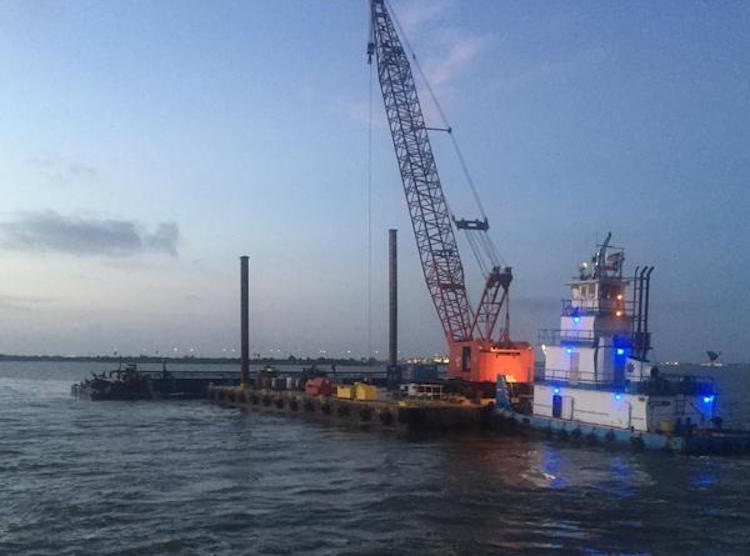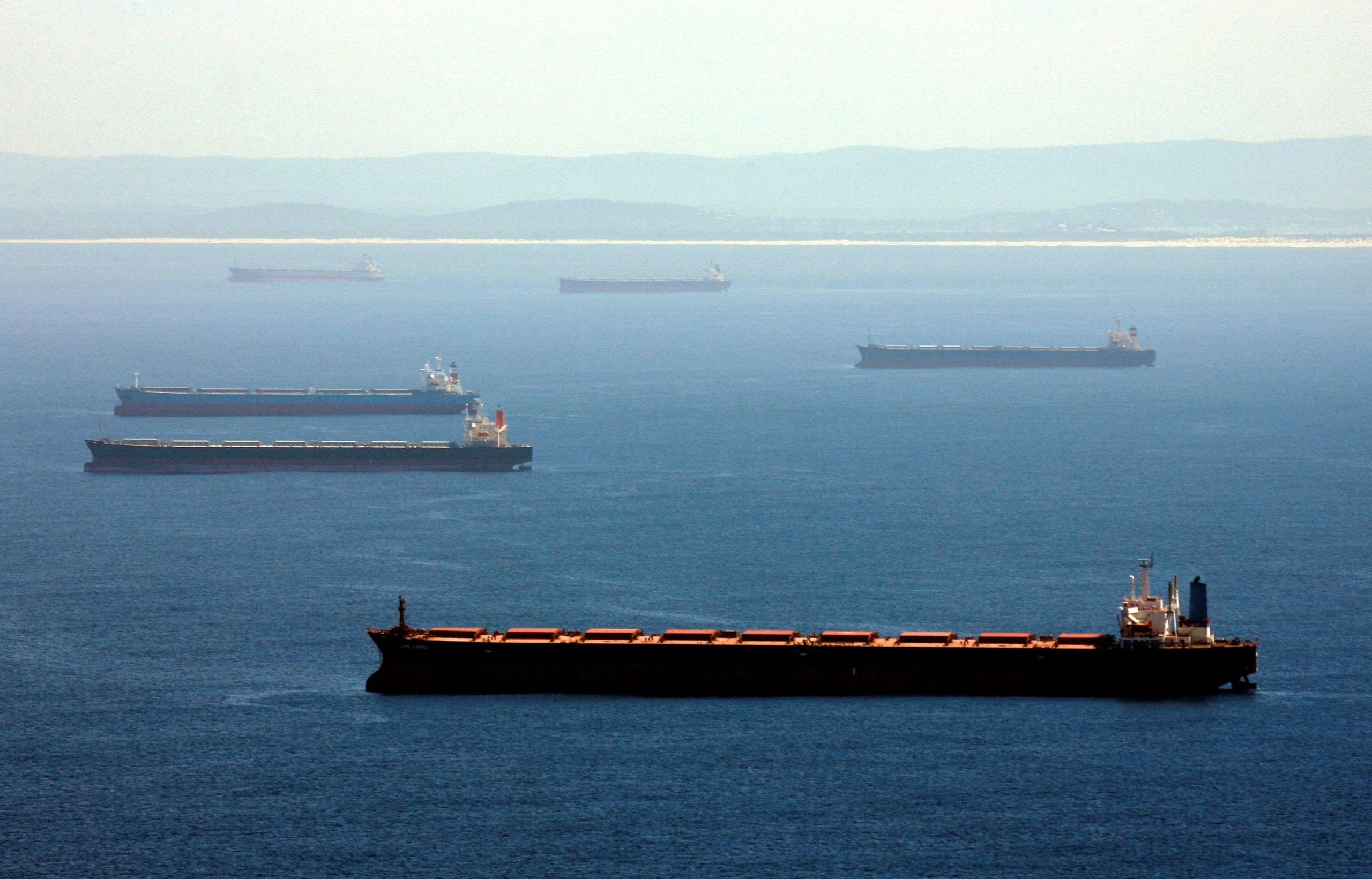Photo: Texas General Land Office
Update: The U.S. Coast Guard says that the closed section of the Intracoastal Waterway from mile marker 348 to the Houston Ship Channel has been opened to one-way traffic westbound at a slow bell until the remaining barge can be moved. Vessel traffic in the Ship Channel itself has not been impacted.
By mid afternoon, incident responders moved three of the barges to a safe location to lighter the product off of them and continued working to stabilize the remaining barge for its transfer and subsequent lightering.
As of of Monday, response officials said they do not believe any significant amount of product was released into the waterway. Air monitoring in the area continues to show no risk to the public. Still no injuries have been reported.
 By Erwin Seba
By Erwin Seba
HOUSTON, July 20 (Reuters) – A section of a key Gulf Coast waterway was shut after two barges collided Monday, setting one afire and possibly spilling a gasoline additive near the entrance to the Houston Ship Channel, the U.S. Coast Guard said.
The Intracoastal Waterway (ICW), which runs between barrier islands and the coast of the U.S. mainland in the Gulf of Mexico, was shut from where it intersects the Houston Ship Channel to Mile Market 350 on the ICW.
The Houston Ship Channel itself, which supplies the nation’s busiest petrochemical port, remained open after the collision shortly after 1 a.m. local time (0600 GMT). Early media reports erroneously said a channel section had been closed, but it was unaffected.
The Coast Guard said it took over four hours to extinguish the blaze on one of the barges, which was carrying 1 million gallons of the highly volatile gasoline additive naphtha.
The Coast Guard and the Texas General Land Office said it was unclear if any of the naphtha spilled into the waterway.
“At this time the impact on the environment is minimal,” Trang Vu, senior response officer with Texas General Land Office, an agency which manages many state-owned areas.
A Coast Guard spokesman said naphtha evaporates quickly and that 20,000 gallons spilled in the Ship Channel earlier this year evaporated in three hours.
The collision occurred when one tug pulling the barges lost power, the Coast Guard said. It reported no injuries.
For Gulf Coast U.S. refiners, the ICW is primarily used to ship refined products like gasoline, diesel, gas oil and naphtha to other plants.
A source familiar with Gulf Coast refinery production said there was likely to be little impact to production from the ICW section shutdown.
At Exxon Mobil Corp ‘s 560,500 barrel per day (bpd) Baytown, Texas refinery operations were normal and unaffected by the ICW barge collision, company spokesman Todd Spitler said. That refinery is the second largest in the United States.
A dispatcher for the Houston ship pilots association said vessels moving on the Ship Channel near the ICW entrance were moving at a slower speed on Monday morning.
“The ICW on the Bolivar (Peninsula) side is closed, no effect on the Ship Channel,” the dispatcher said. “They have to slow when they go through the area, but other than that there’s no problems.” (Additional reorting by Koustav Samanta and Nallur Sethuraman in Bengaluru and Jessica Resnick-Ault in New York.; Editing by and Bernadette Baum and W Simon)
(c) Copyright Thomson Reuters 2015.

 Join The Club
Join The Club











